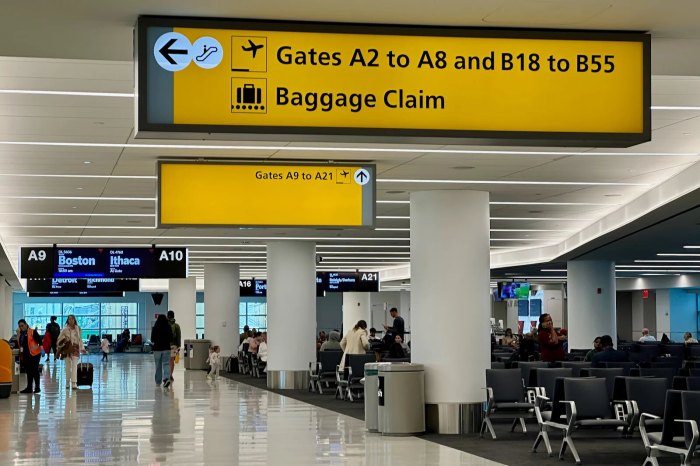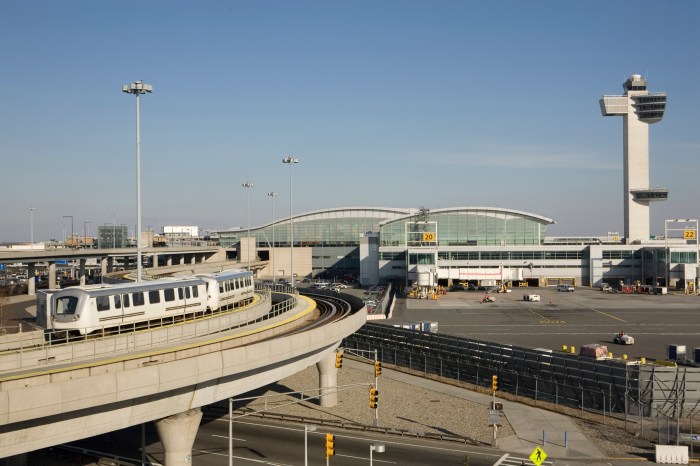By Madina Toure
Transit advocacy groups and Queens lawmakers are calling on the MTA to consider additional options for funding its five-year capital plan after its board voted last week to increase the base fare on subways and buses from $2.50 to $2.75, effective March 22.
The Metropolitan Transportation Authority proposed a $32 billion, five-year capital-spending project, but MTA officials have not yet found a way to reduce a $15 billion budget gap.
John Raskin, executive director of the Riders Alliance, urged Gov. Andrew Cuomo and members of the Legislature to act quickly.
“Paying for public transit with fare hikes is a regressive way to fund a public service that the entire region relies on,” Raskin said in a statement.
Gene Russianoff, from the transit advocacy group Straphangers Campaign, called on city government to increase its funding for MTA’s capital plan.
“The city should be doing better by the riding public,” Russianoff said.
The city’s contribution has been running at $100 million a year for most years since 1982, he added.
Veronica Vanterpool, executive director of the Tri-State Transportation Campaign, said the organization did not oppose the fare hikes.
But she said every two years, transit riders are faced with fare increases between 4 percent and 7.5 percent. Other funding partners, including the state Legislature, need to contribute more to the system, she said.
”Transit riders continue to be the beneficiary that is paying their share while some of the other funding partners are not,” Vanterpool said.
City Councilman Mark Weprin (D-Oakland Gardens), a member of the Council’s transportation committee, agreed.
“The MTA, I think, is serious that they do need more money, but it shouldn’t be funded on the backs of straphangers,” Weprin said. “It should be spread throughout the region through a program that funds the MTA capital plan and other MTA budget needs.”
City Councilman Costa Constantinides (D-Astoria), also a member of the Transportation Committee, echoed similar sentiments.
“We need to be looking at ways to get more cars off the road by increasing usage of public transit,” Constantinides said in a statement.
At the MTA board meeting Jan. 22, opposition to the fare hike from public speakers and dissident board members was muted. They focused more on the need to close the $15 billion gap — created by major projects and overhauling the transit systems — in the capital plan to avoid fare increases.
Suggestions included putting pressure on the city to provide more money, which former Mayor Michael Bloomberg opposed.
City Department of Transportation Commissioner Polly Trottenberg, a new board member, said the city would step up its efforts.
“We’re ready to do our part,” Trottenberg said.
The board also voted to increase the fare for the popular 30-day MetroCard from $112 to $115.50, a $4.50 increase. The seven-day MetroCard will increase from $30 to $31, and the bonus for the per-ride will increase from 5 percent to 11 percent.
Straphangers will have to add at least $5.50 to the MetroCard before they get the bonus. The 5 percent bonus currently starts with $5 additions to the card.
“Our financial plan assumes modest biennial fare and toll increases, and the board has chosen options with lower increases for our most frequent customers,” MTA Chairman Thomas Prendergast said.
The changes represent a 4 percent increase in fares and tolls over the next two years. The MTA has cut $1.1 billion from its yearly spending, with more cuts planned every year to bring yearly savings to $1.6 billion by 2016.
Reach reporter Madina Toure by e-mail at mtoure@cnglocal.com or by phone at (718) 260–4566.



































